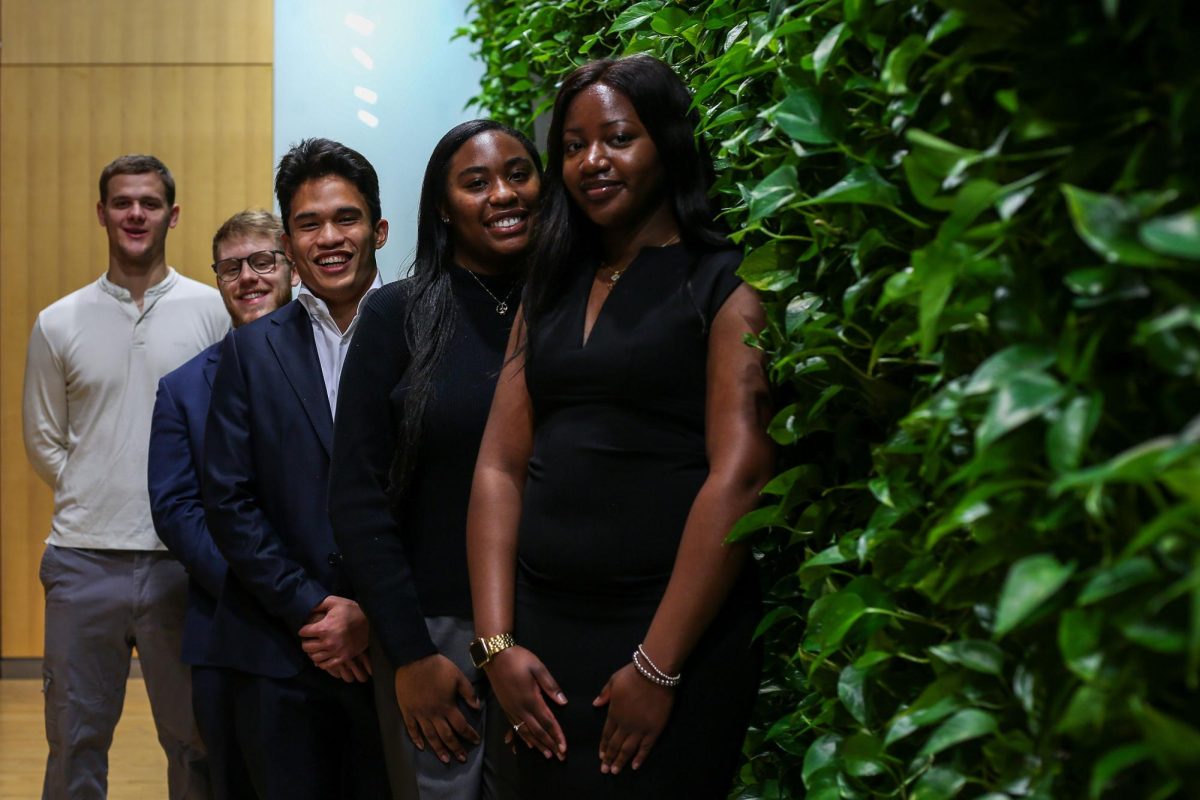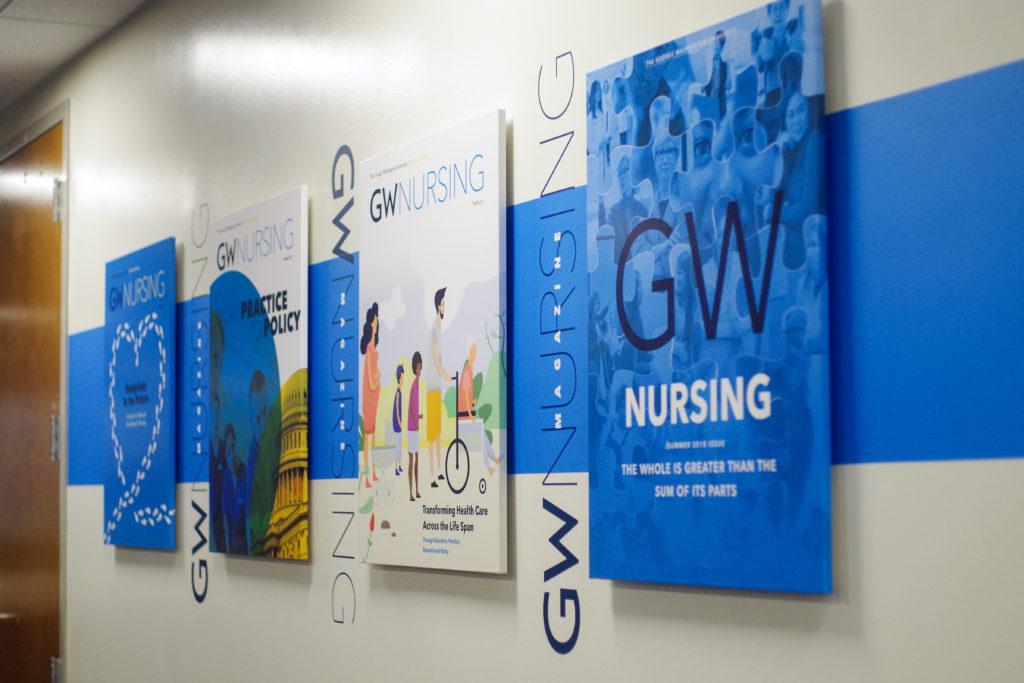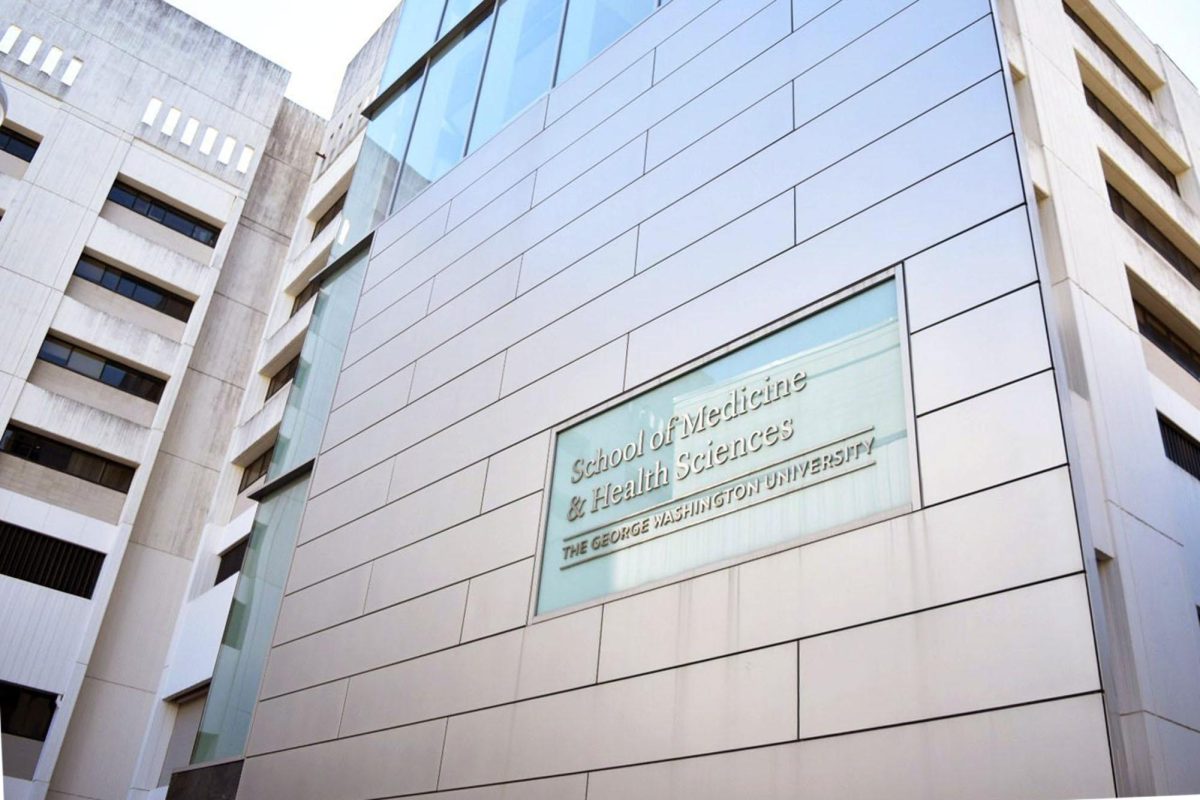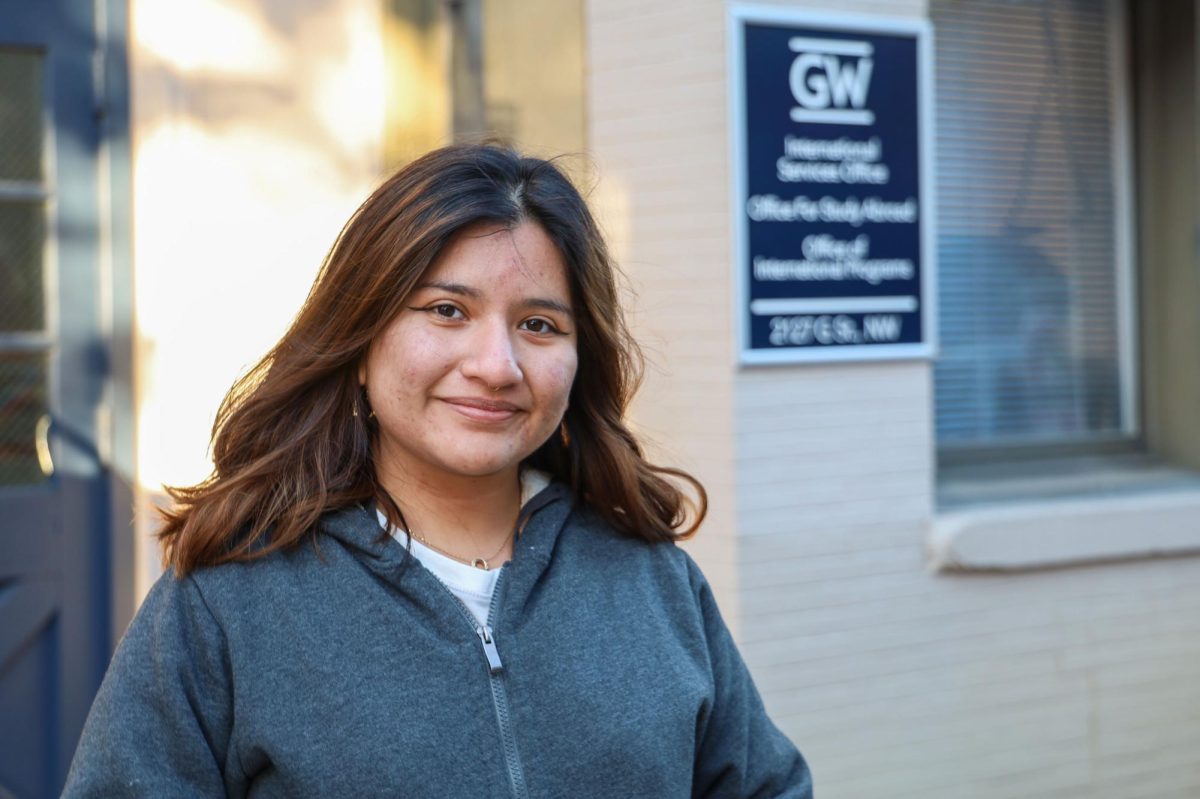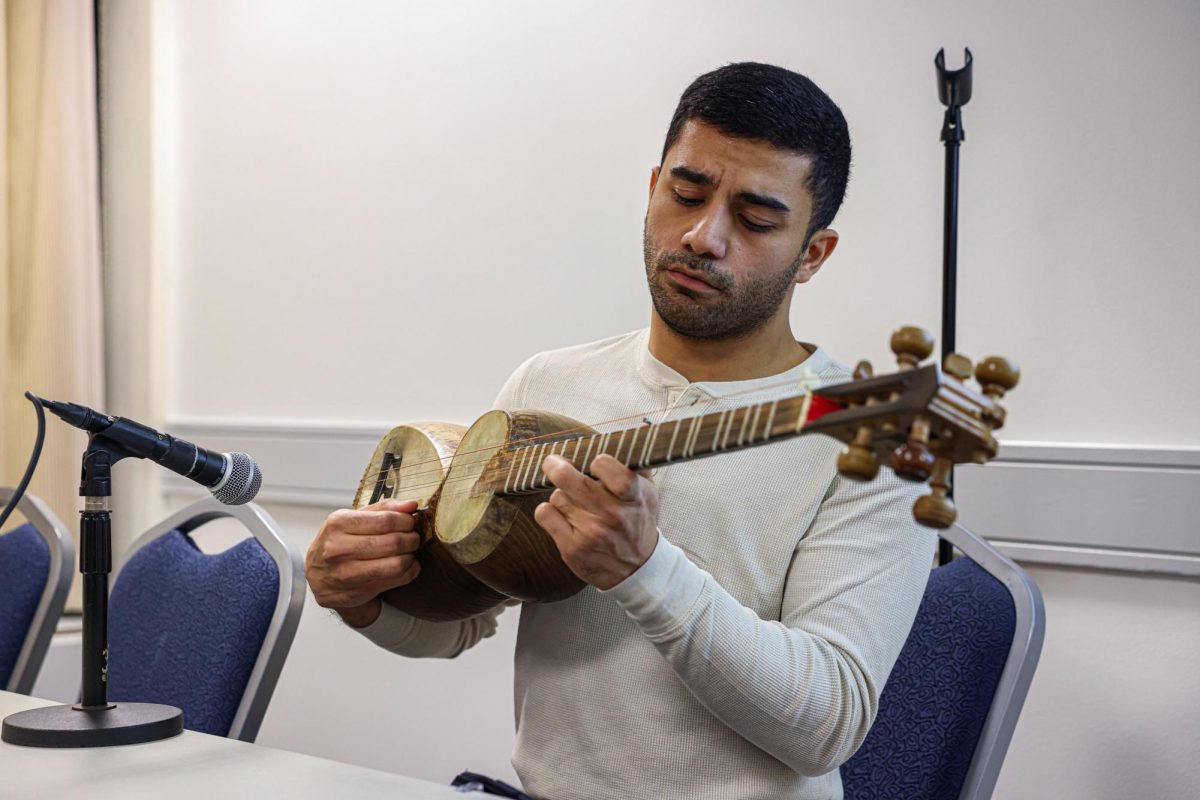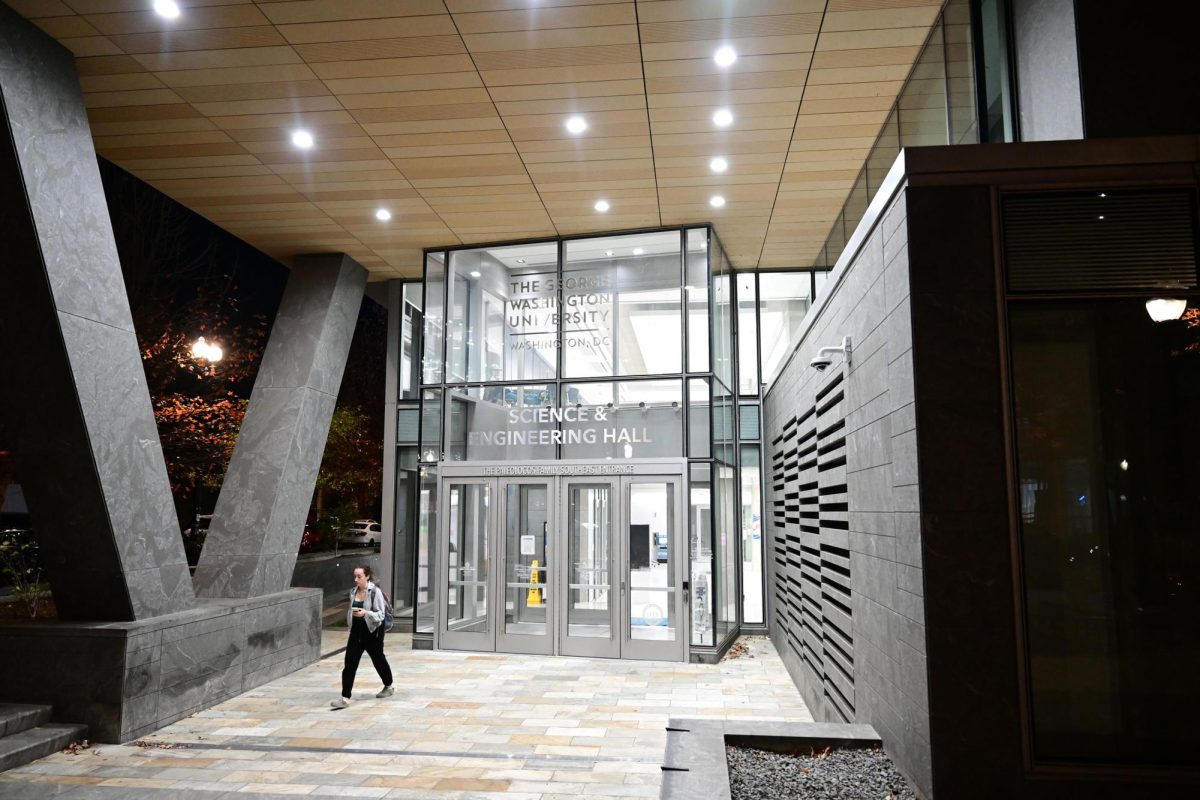A new student organization is working to bring science and engineering-based programs to students in an underserved D.C. public school.
Leaders of GW Engineers’ Philanthropic Society said they will develop and teach programs starting in the fall of 2024 in science, technology, engineering and math for D.C. Public School students to increase accessibility and interest in the fields. EPS executive board members said they wanted to create an organization to give back to the D.C. community after noticing a lack of engineering organizations on campus dedicated to philanthropy and service work.
Ruiz Kamaruszaman, a senior and the president of EPS, said the STEM programs are part of the work of the Engineering Horizons Committee, one of two EPS committees. Members will develop and teach STEM programs to students at Eliot-Hine Middle School, a DCPS school in Northeast D.C. which he said lacks an after-school science curriculum.
He said EPS’s second committee, the Volunteering Discovery Committee, works with Connected DMV — a nonprofit that works to improve social inequities in D.C., Maryland and Virginia — to give back to the D.C. community while helping EPS members professionally advance by getting hands-on work in STEM and adding volunteer hours to their resume.
“When you join our org, you’re not just joining to have a title,” Kamaruszaman said. “There’s impact to be made, not only for the community, but for your own career and your own development, and there’s a really supportive team here to guide you along.”
Kamaruszaman said he noticed a disparity between the “privilege” GW students have compared to the broader D.C. community, seeing many unhoused people around campus during his sophomore year. He said he noticed a lack of philanthropic platforms focused on making an impact on young students in D.C., pushing him to create EPS in October to connect students with STEM programming.
“As engineers, we talk a lot about the prospect of engineering solutions to the world’s problems. But I don’t think a lot of students realize how immediate that reality could be for them through the right platform,” Kamaruszaman said.
Taylor White, a senior and EPS’ vice president of community relations who heads the Engineering Horizons Committee, said the STEM program will officially launch in the fall of 2024 and the group is in the process of talking with administrators at Eliot-Hine.
She said the committee works with the Higher Achievement Program — an extracurricular nonprofit that works to prepare underserved students for high school and college — to bring STEM-based, after-school learning to Eliot-Hine. She said the program currently offers after-school programming for math at Eliot-Hine but lacks a science curriculum, which EPS hopes to resolve by talking with Eliot-Hine faculty leaders to develop and teach programs in science and engineering.
“The students at Eliot-Hine will really enjoy it, and I also think the parents of students at Eliot-Hine will really enjoy it because it’ll give them relief knowing that their students are still at school and they’re still being taken care of and watched,” White said. “But also fostering some sort of passion and a future in education, STEM education.”
Nicolo Krueger, a junior and the director of community relations for EPS, said most people typically think of philanthropy as monetary donations, but EPS’s goals align more with helping people hands-on through their committees. He said he personally aims to convince at least one student to go to college by showing students through their programs that anyone can do STEM through the Engineering Horizons Committee.
“People have this idea that STEM is the most impossible thing to do, and you have to do amazing in high school to pursue STEM, which is just not true at all,” Krueger said. “Being able to tell kids that thought that they couldn’t that they can would be critical.”
Senior Rigel Brown, EPS’s vice president and head of the Volunteering Discovery Committee, said members of the committee volunteered at Connected DMV’s Quantum World Congress — a conference for researchers, technology developers and industry experts in quantum field theory — in September. Brown said the group brought 30 volunteers from EPS to help run the event and to network with experts.
“In the engineering school, we have a lot of resources, a lot of smart people, but there wasn’t a ton of philanthropy being done focused on the D.C. area,” Brown said.
Brown said the nonprofit asked EPS members to build a website to open access to quantum technology for more students in the DMV area which they called a “quantum student network.” Once the website is developed, EPS will test the network with user groups like the students at Eliot-Hine, he said.
Brown plans to share the quantum student network volunteer opportunity to provide volunteers with digital credentials that would help them advance in their careers.
“All these companies that kind of look for people who have the skills, if you have the credit certification, then they know, ‘Okay, hey, they fit what we’re looking for,'” Brown said. “It’s an easy grab for them.”


